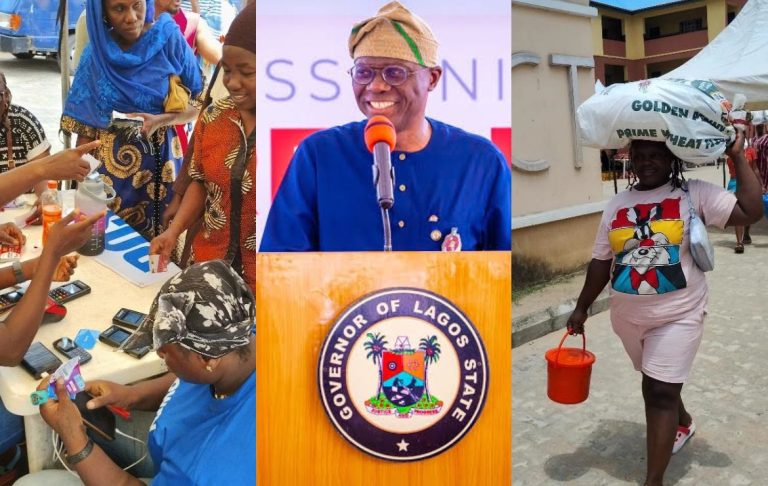Lagos residents have trooped out as “Ounje Eko,” a discounted food program, began today.
According to the News Agency of Nigeria (NAN) report, eager buyers began arriving as early as 6:00 a m at the Lagos Progressive Junior Secondary School in Surulere, anticipating the commencement of the state government’s discounted food initiative.
Although the program was scheduled to start at 11:00 a.m., it was delayed by one hour due to the initial unavailability of vouchers.
Dr Adewunmi Adeyemi, the market leader overseeing the Surulere centre of the Ounje Eko project, emphasised that buyers could only acquire items using vouchers.
He reiterated Governor Babajide Sanwo-Olu’s aim to provide residents with access to affordable food options. The state government would subsidise 25% of the costs while buyers would cover the remaining 75%.
Among the items on offer were eggs, bread, vegetables, rice, garri, and beans.
Each buyer was entitled to specific quantities of these essentials, ensuring fair distribution among the community.
Despite the organised setup, some residents expressed dissatisfaction with the program’s delayed start and the perceived inadequacy of the discounts.
Mrs. Abimbola Kanwei, a 70-year-old resident, highlighted the challenges faced by elderly individuals who endured lengthy waits under the scorching sun.
She said, “I got here 7.00 a.m. to be able to purchase food and I was given number 25.
“As at 12.00 noon they had not started attending to us. I am old and I don’t have strong legs.
“This was not properly coordinated because as at 12 noon, we were told that they were still waiting for vouchers and the items were expensive.
“Government should try and address this shortfall. We appreciate what Sanwo-Olu is doing but we don’t have to suffer before we buy the food.”
Alhaja Serifat Rasaq urged the government to consider increasing the discount to 50%, comparing it to discounted programs organised by local government chairmen.
“These food items are too expensive, the governor should increase the discount to 50 per cent.
“Last week, we bought same items here at cheaper prices than today. The governor can do it for us because things are very hard now,” she said.
Mrs Abimbola Agbor, a businesswoman and mother of two, also called for a review of the 25 per cent discount, saying the prices of items were high just like at the conventional markets.
The governor should review the discount to 50 per cent to help the masses.
She said, “We cannot feel any impact with 25 per cent discount, people are not buying the items because they are too expensive.”
Other residents echoed similar sentiments, including Mrs. Abimbola Agbor, Mr. Hamed Layinde, and Mrs. Serah Dadson, who stressed the need for a more streamlined process and a higher discount percentage to alleviate financial burdens.
ALSO READ: Group ready to support Kwara North candidate for 2027 governorship
However, amidst the criticisms, there were also expressions of appreciation for the initiative. Mrs. Abosede Obi commended the government for bringing the market to the local community but called for further adjustments to make the program more accessible and impactful for residents.
Overall, while residents welcomed the discounted food program, there were calls for improvements in efficiency, discount rates, and accessibility to ensure its effectiveness in easing the financial strain on households.NAN
